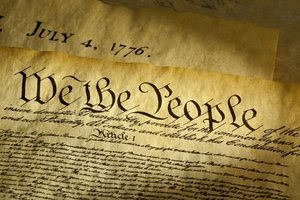That summer seemed to last forever
And if I had the choice
Yeah, I'd always wanna be there
Those were the best days of my life
-- Bryan Adams
I don’t know if they were really the best days of my life, but at the time that summer of 1969 certainly ranked pretty high. It was an eventful time, fair to say a tumultuous time in our history. A lot happened then. Some of it good. Some of it bad. Almost all of it memorable.
In early June the last episode of "Star Trek" aired on NBC. And President Nixon announced that he was bringing 25,000 US troops from Southeast Asia. This seemed very important at the time as I had recently turned eighteen years old and I was graduating from Maine South Township High School in Park Ridge, Illinois. Shortly thereafter my family moved to suburban Milwaukee, Wisconsin, and I spent a couple weeks out in Southern California and in Texas before I went to work at a summer job to earn money for college in the fall.
There was some pretty awesome music to listen to on the radio driving to and from work and on weekend trips back to Chicago to visit my girlfriend at the time. My God, the Beatles were still together! Their song "Get Back" topped the charts for a few weeks (it would appear on the "Let it Be" album the following year). And how can I forget the Stones and "Honky Tonk Women," the King and "In the Ghetto," Dylan’s "Lay Lady Lay," The Youngbloods and "Get Together," or the Guess Who’s "These Eyes"? The Fifth Dimensions’ cover of "Aquarius/Let the Sunshine In," from the musical "Hair," was in high rotation that summer as was "Good Morning Starshine," from "Oliver," and "The Love Theme from Romeo and Juliet." Of course, there were also songs I would have preferred to forget altogether – "Sugar, Sugar" by the Archies, Tommy James and the Shondells’ "Crystal Blue Persuasion" (which still get some radio play even today), Jackie DeShannon’s "Put a Little Love in Your Heart," or Andy Kim’s cover of the Ronette’s 1963 hit "Baby, I Love You." Later that summer almost a half a million people converged on a small farm in Bethel, New York, for what became known as the Woodstock music festival which featured such legendary artists as the Who, the Grateful Dead, Jefferson Airplane, The Band, Joe Cocker, CSN&Y, and Jimi Hendrix and Janis Joplin (both of whom would die at age 27 the following year) would come to define an entire generation of young Americans.
One song,"Bad Moon Rising" by Creedence Clearwater Revival (who also performed at Woodstock) captured the summer’s darker side.
I see earthquakes and lightnin'
I see bad times today . . . . .
I hear hurricanes a-blowing
I know the end is coming soon
I fear rivers over flowing
I hear the voice of rage and ruin
This past week we commemorated the 50th anniversary of the first manned mission to the surface of the moon on July 20, perhaps the highlight of that eventful Summer of 69. Two months earlier the Apollo 10 mission was a dress rehearsal for the Eagle, the lunar landing module . . . everything but the actual landing. It also transmitted the first color pictures of Earth from space. Apollo 11, carried Mission Commander Neil Armstrong, and crewmates Buzz Aldrin and Michael Collins to the moon and the entire world sat in front of its televisions watching that first small step for man, that giant leap for mankind as Armstrong left the first human footprint on the moon. Six lunar landings would eventually follow. That night, after watching the landing at my girlfriend’s house in Park Ridge, I drove home to Milwaukee, stopping along the way to stare up into the night sky and imagining what all this would mean for the future.
And now, fifty summers later, I am sitting at my kitchen table staring out at a lake in Maine. I am 68 years old, I have been married almost 45 years to a wonderful life companion, and I have a grown son I am very proud of. I look back on a long and satisfying professional career. There have been many days over this wide expanse of time I can consider as some of the best of my life. Yet those few weeks of the Summer of 1969 will, whether they brought joy or sorrow, remain fresh in my memory forever.


